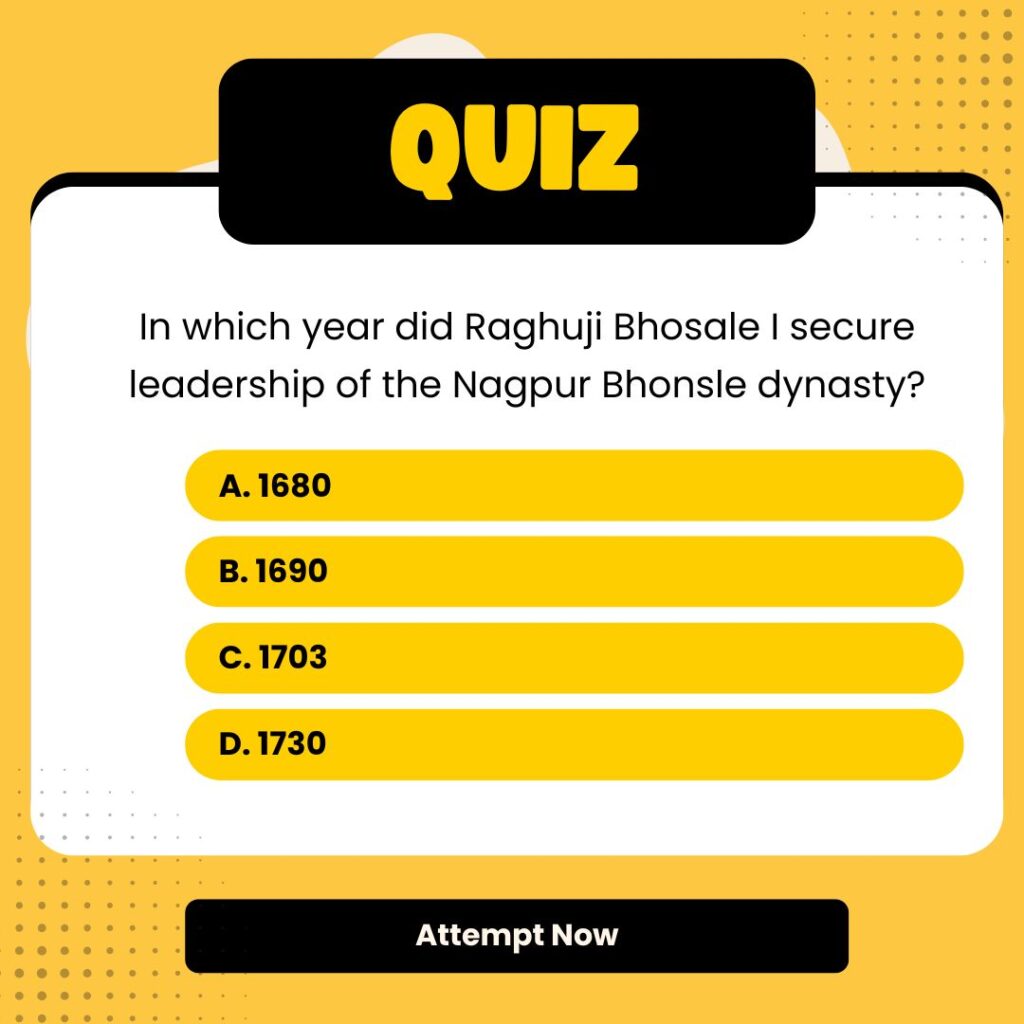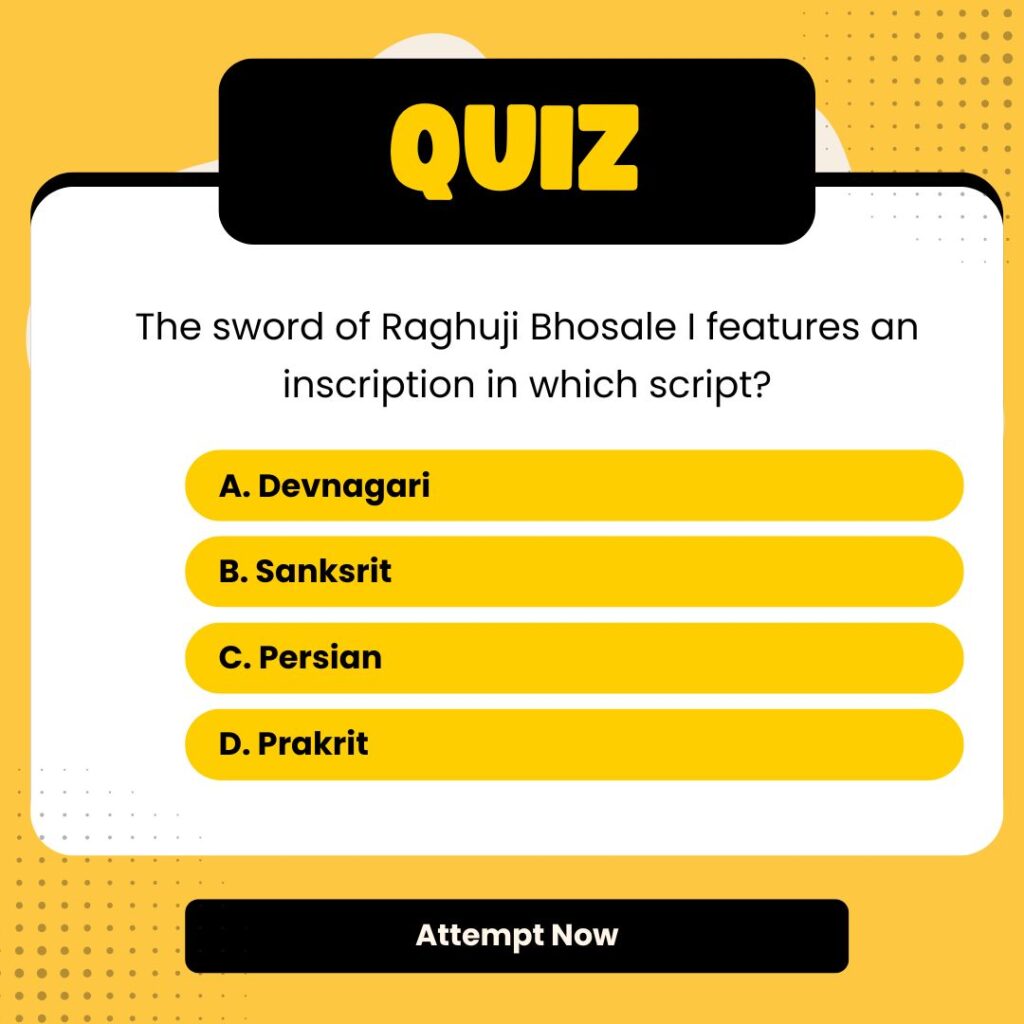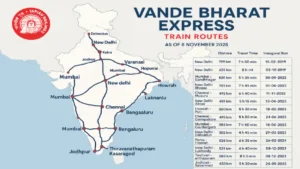On April 29, 2025, the Maharashtra government successfully purchased the iconic sword of Raghuji Bhosale I from an auction in London for Rs 47.15 lakh. The sword, an emblem of the Maratha warrior’s valor and legacy, was crafted in the firangi-style with a European-style single-edged blade, gold inlays, and inscriptions in Devanagari script. Raghuji Bhosale I played a pivotal role in consolidating the Maratha Empire and expanding its influence across east-central India. This historic acquisition is seen as a step toward preserving the Maratha culture and heritage.
Why in the News?
The iconic sword of Raghuji Bhosale I, a prominent Maratha warrior and the founder of the Nagpur Bhosale dynasty, has been acquired by the Maharashtra government at an auction in London for Rs 47.15 lakh. This historic acquisition aims to reclaim a significant piece of Maratha heritage, symbolizing the valor and legacy of the Maratha Empire. The sword, adorned with a Mulheri hilt and gold inlay, holds both ceremonial and historical value.
Key Features of Raghuji Bhosale’s Sword
- Sword Type: Basket-hilt with a firangi-style blade.
- Blade Features: Single-edged, slightly curved, with two fullers (grooves/channels running the blade).
- Hilt: Mulheri-style with gold inlays.
- Inscription: Devanagari script reading Shrimant Raghuji Bhosale Sena Saheb Subah Firang.
- Historical Value: Likely a gift from Chhatrapati Shahu Maharaj to Raghuji Bhosale after he was conferred the title Sena Saheb Subah.
Who Were the Nagpur Bhonsles?
- The Nagpur Bhonsle family was a royal Kshatriya clan and a prominent faction within the Maratha Empire.
- Known as the descendants of Udaipur’s Sisodia Rajputs, they played a key role in expanding the Maratha territories.
- They were associated with the Hinganikar clan, with ancestral roots tracing back to the Pune district.
- Raghuji Bhosale I established the Nagpur Bhosale dynasty after securing leadership through his victory in 1730.
Raghuji Bhonsale I: His Role in Maratha History
Background: Raghuji Bhonsale I rose to prominence in the early 18th century with the backing of Chhatrapati Shahu Maharaj in 1728.
Major Achievements
- Confronted family conflicts, particularly with his uncle Kanhoji.
- Expanded Maratha control over Berar, Gondawana, and Odisha.
- Played a key role in the reclamation of Odisha after the 1751 treaty with Nawab Alivardi Khan.
- Revived the Shree Jagannath Temple and supported pilgrimage infrastructure.
- Expanded Maratha territory across Bihar, Madhya Pradesh, Chhattisgarh, and West Bengal.
- Contributed to the Maratha military campaigns in Bengal.
How the Sword Left India
- The sword was possibly part of the loot from the 1817 Battle of Sitabuldi, following the defeat of the Nagpur Bhonsles by the British East India Company.
- The British forces, led by General Sir Alexander Campbell, seized treasures from the Bhonsle treasury after the battle.
- The Bhonsle palace in Nagpur was set ablaze, and the sword might have either been looted or gifted to the British afterward.
| Summary/Static | Details |
| Why in the news? | The Return of Raghuji Bhosale’s Legendary Sword to Bharat |
| Sword Purchase | Sword bought by Maharashtra government for Rs 47.15 lakh at London auction |
| Sword Type | Firangi-style, basket-hilt, gold inlays |
| Inscription | “Shrimant Raghuji Bhosale Sena Saheb Subah Firang” |
| Historical Significance | Symbolizes Maratha valor; acquired to preserve heritage |
| Who Was Raghuji Bhosale I? | Founder of Nagpur Bhonsle dynasty; expanded Maratha Empire |
| Key Contributions | Expanded empire, revived Jagannath Temple, strategic military victories |











 Historic Move: Karnataka Becomes India’s...
Historic Move: Karnataka Becomes India’s...
 India Gears Up for 2026 Tiger Census: Wo...
India Gears Up for 2026 Tiger Census: Wo...
 List of Vande Bharat Express Routes in I...
List of Vande Bharat Express Routes in I...







